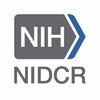
Identification of Mechanism in the Erythroid Response in Patients With Myelodysplasia Undergoing...
MyelodysplasiaMyelofibrosis1 moreThe study aims to evaluate the molecular mechanism underlying the erythroid response observed in some patients with myelodysplasia, myelofibrosis and aplastic anemia treated with Deferasirox or Deferoxamina.

Oral Manifestations of Aplastic Anemia
Aplastic AnemiaThe purposes of this study are threefold: 1) to evaluate the prevalence and risks of oral complications in patients with aplastic anemia; 2) to evaluate if oral problems in these patients can predict their response to treatment; and 3) to review complications of dental treatment in these patients in order to establish treatment guidelines. This study will be performed through a review of medical charts of 79 patients with aplastic anemia and 67 patients with schizophrenia who were treated at the National Institutes of Health Dental Clinic between 1993 and 1999. The schizophrenia patients will serve as a control population. Demographic, clinical and radiographic information will be collected for all patients. Additional data collected only for aplastic anemia patients will include medical therapy, disease duration, blood cell counts, oral problems that developed during treatment and treatment response.

Aplastic Anemia Epidemiology: Incidence and Case-control
Blood DiseaseAnemia1 moreTo conduct incidence and case-control studies of aplastic anemia in metropolitan Bangkok, Thailand

Identifying Characteristics of Bone Marrow Failure Syndromes
Bone Marrow Failure SyndromesAnemia10 moreBone marrow failure syndromes (BMFS) are rare disorders characterized by dysfunctional hematopoietic stem cells, which give rise to all red and white blood cells. The deficiency of blood cells, or cytopenia, caused by this malfunction leads to an assortment of diseases and disorders, all of which are characterized as BMFS. Because these diseases are rare, conducting research on them is difficult, and standards of treatment for most BMFS have yet to be developed. This study will collect clinical and laboratory data from people with BMFS to identify the characteristics and biological markers associated with these diseases over time. This information will assist doctors and researchers to develop better therapies and diagnostic tests that will help improve the management of BMFS and cytopenias.

Study of Non-Myeloablative Haplo-identical Haematopoietic Stem Cell Transplantation in Patients...
Haematological MalignanciesAcquired Aplastic AnaemiaAllogeneic haematopoietic stem cell transplantation (HSCT) is a potentially curative therapy for patients with both haematological and some non-haematological disorders. However, one of the major limiting factors for transplantation is the inability to identify a suitable HLA-matched donor. Development of an cost-effective and clinically efficacious alternative to HLA-identical sibling or unrelated donor transplantation would significantly expand the availability of allogeneic HSCT to patients in Singapore. Preliminary results indicate that the use of high dose post-transplant cyclophosphamide (Cy) for graft versus host disease (GVHD) prophylaxis in haplo-identical allogeneic HSCT is associated a low incidence of GVHD and low treatment related toxicity. We propose a phase II clinical trial to assess the efficacy of a haplo-identical allogeneic transplantation protocol using high dose post-transplant Cy for the treatment of patients with haematological disorders. A non-myeloablative protocol (Fludarabine-low dose cyclophosphamide-TBI) will be used for patients with bone marrow failure syndromes and indolent lymphoid disease. In view of the higher relapse risk of patients with myeloid malignancies, these patients will be treated with a reduced intensity conditioning regimen (Fludarabine-Busulphan). The primary end-point of the study will be overall survival at one year. Economic cost of the haplo-identical transplantation, as well as treatment timelines will be recorded and compared will other forms of unrelated donor allogeneic transplantation (umbilical cord blood transplantation and unrelated HLA-matched adult donor). Immunological reconstitution of patients following haplo-transplantation will be analysed and data will be utilized to guide future immunotherapy strategies post-transplantation. One year survival after non-myeloablative haploidentical stem cell transplantation is not inferior to that observed after non-myeloablative volunteer unrelated donor or unrelated cord blood haematopoietic stem cell transplantation.

Study of MRI Monitoring in Patients With Aplastic Anemia and Low or Int-1 Risk of MDS Complicated...
Aplastic AnemiaDysmyelopoietic Syndromes1 moreThe investigators aim to give an overview of Iron overload(IOL) of patients with AA and low and int-1 risk MDS and their sequelae under different chelation treatment. And the investigators also aim to evaluate the relationship of LIC and T2*/R2*.

Ambispective Observational Study to Evaluate the Incidence and Management of Aplastic Anemia in...
Aplastic AnemiaThis is a national, multicenter, ambispective, observational post-authorization study (EPA-SP for its acronym in Spanish) to describe the incidence, clinical management and outcome of aplastic anemia in hospitals throughout Spain.

Collection of Blood and Bone Marrow From Patients With Aplastic Anemia for Analysis of Adhesion...
Aplastic AnemiaHealthyThis study is designed to collect bone marrow and/or peripheral blood cells and plasma, for the analysis of adhesion molecules, chemokines and their receptors from newly-diagnosed aplastic anemia patients, and patients treated with antithymocyte globulin plus cyclosporine

Expanded Access Use of Itacitinib to Treat a Single Patient With Aplastic Anemia
Aplastic AnemiaExpanded Access Use of Itacitinib to Treat a Single Patient With Aplastic Anemia

Establishing a Data Base for Aplastic Anemia and Other Marrow Failure Syndrome
Aplastic Anemia and Other Marrow Failure SyndromeEstablishing a Data Base for Aplastic Anemia and Other Marrow Failure Syndrome
